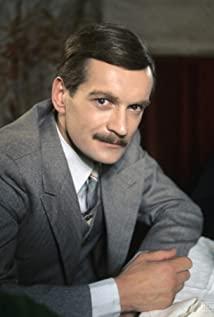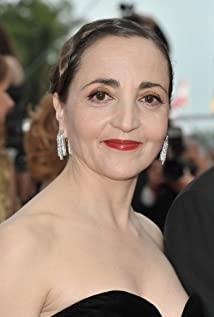At the most obvious level, "Total Eclipse" tells a love triangle. Verlaine and Rimbaud became hopelessly in love after their first meeting, and Verlaine's family was torn apart. Of course, Verlaine's original marriage was far from happy. Verlaine looked at his wife's wealth, harmony, beauty, and her young and plump body. He chose her simply because she was an ideal wife, a woman no man could refuse. The lack of spiritual resonance between the two, coupled with Verlaine's erratic nature, frequent drinking, and violence against his wife, made Matilda feel safe only by living with her family. For Verlaine, although he does not love his wife's soul, or even hates it, but he needs his wife's money, and he can't refuse a young and plump body, so he will never take the initiative to end the marriage, he is exactly what Rimbaud said. The "all things are bearable" category. On the contrary, I was surprised that Matilda could endure such a marriage. I guess it was because she did love Verlaine, and secondly, she thought he did love her, after all Verlaine was the kind of person who only loved five points. But it can be said that men and women are so gullible when it comes to marriage and love. But Rimbaud came, and the turbulent marriage was completely blown down like a hurricane. If Verlaine is carnal, Rimbaud is spiritual. Since his appearance, Rimbaud has been walking and leaving constantly, unable to settle down with the pictures in the camera. He walked through the muddy fields of the countryside, through the cluttered streets of Paris, through the meadows, the seaside, and even in his dreams he murmured "on (go) on" In prison, he went to Africa. The contradiction between the characters' attitude towards love and the result makes the film finally show an anti-love style. Matilda may be the only character who is loyal to love. Although she does not understand poetry, she praises and supports her husband wholeheartedly; she chooses to forgive her husband for repeatedly beating her; The flesh wins back the husband. But in the end, she was teased by her husband and her husband's lover, and she lost both her love and her dignity. Rimbaud does not care about love in essence, what he cares about is always freedom and transcendence of the world. Interestingly, like Matilda, Rimbaud had physically seduced Verlaine. Verlaine rented a hotel for Rimbaud, who had been kicked out by the Matilda family, and was about to leave, but Rimbaud stood on the window sill of the hotel stripping naked one by one, called Verlaine on the street, and threw him at him. clothes, but the larger purpose of this move is to rebel against the world. Although Verlaine's mouth was full of love, he was only loyal to his fleshly desires and selfish heart. His wife forgave him again and again, saved him, and finally gave up on him and accused him in despair. When trying to save Verlaine, Matilda tried to remind him of the happy days when he was newly married. In fact, when a person tries to save, love is no longer there. In prison, he went to Africa. The contradiction between the characters' attitude towards love and the result makes the film finally show an anti-love style. Matilda may be the only character who is loyal to love. Although she does not understand poetry, she praises and supports her husband wholeheartedly; she chooses to forgive her husband for repeatedly beating her; The flesh wins back the husband. But in the end, she was teased by her husband and her husband's lover, and she lost both her love and her dignity. Rimbaud does not care about love in essence, what he cares about is always freedom and transcendence of the world. Interestingly, like Matilda, Rimbaud had physically seduced Verlaine. Verlaine rented a hotel for Rimbaud, who had been kicked out by the Matilda family, and was about to leave, but Rimbaud stood on the window sill of the hotel stripping naked one by one, called Verlaine on the street, and threw him at him. clothes, but the larger purpose of this move is to rebel against the world. Although Verlaine's mouth was full of love, he was only loyal to his fleshly desires and selfish heart. His wife forgave him again and again, saved him, and finally gave up on him and accused him in despair. When trying to save Verlaine, Matilda tried to remind him of the happy days when he was newly married. In fact, when a person tries to save, love is no longer there.
View more about Total Eclipse reviews











